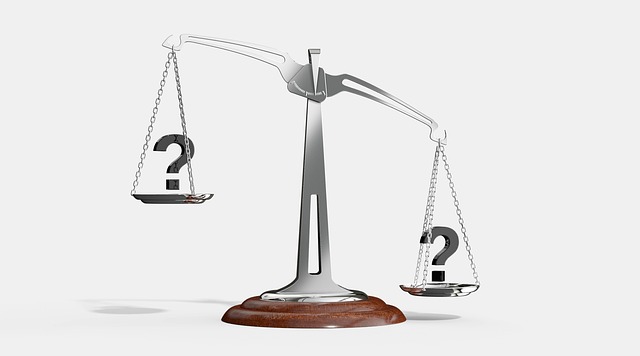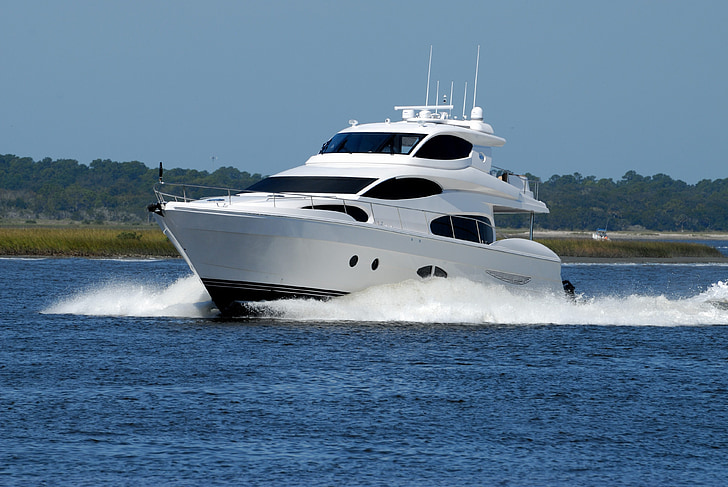What Is Considered Upper Class
In the vast and diverse realm of societal hierarchies, one classification stands out as the epitome of affluence and privilege: the upper class. It is an elusive status shrouded in curiosity and speculation, prompting us to question what truly defines those who reside within its privileged confines. To explore this enigmatic concept, this article delves into the core attributes and markers that determine what is considered upper class in today’s world – sparing no fluff or embellishment. Get ready to uncover the contrasting traits, financial thresholds, and lifestyle patterns that constitute the elusive realm of the upper class.
Table of Contents
- Understanding Social Class and Its Influence on Society
- Exploring the Concept of Upper Class and Its Definition
- Determining Wealth as a Key Indicator of Upper Class Status
- Examining Education and Occupation in the Upper Class
- Unveiling the Role of Cultural Capital in Defining Upper Class
- Challenging Stereotypes: Diversity and Social Mobility within the Upper Class
- FAQs
- Key Takeaways
Understanding Social Class and Its Influence on Society
Understanding the concept of social class is crucial in comprehending how it shapes and impacts our society. Social class refers to the hierarchical division of individuals based on their economic status, occupation, education, and social prestige. It plays a pivotal role in influencing various aspects of our lives, including opportunities, access to resources, and even our behaviors and attitudes.
At its core, social class can be classified into three main categories: upper class, middle class, and lower class. Each class exhibits distinct characteristics and experiences different levels of privilege or disadvantage. Members of the upper class tend to possess substantial wealth, inheritances, and often pursue prestigious professions. They typically enjoy access to exclusive resources, educational opportunities, and influential networks, which can perpetuate their privileged status. The middle class, on the other hand, represents a significant portion of the population, usually characterized by stable incomes, access to quality education, and employment in white-collar jobs. While they may not possess the same level of wealth as the upper class, they generally enjoy a comfortable standard of living. Lastly, the lower class primarily comprises individuals with low incomes, limited education, and restricted access to resources. They often face financial hardships, limited job opportunities, and increased vulnerability to social inequalities.
Understanding the dynamics of social class is essential as it influences not only the economic disparities but also widely shapes social interactions, opportunities, and mobility within society. It highlights the structural inequalities and disparities that exist, leading to social stratification and differing life outcomes. Social class influences education, healthcare, housing, and even mental health outcomes. Recognizing and addressing these disparities can pave the way for more equitable policies, social mobility, and a fairer society for all. So, by acknowledging the significant influence of social class, we can work towards minimizing its negative impacts and strive for a society that ensures equal opportunities and well-being for every individual, regardless of their social class.
Exploring the Concept of Upper Class and Its Definition
When it comes to understanding the idea of upper class, there are several factors to consider that shape its definition. Economic status is undeniably a crucial component of this concept. Individuals belonging to the upper class are typically characterized by their considerable wealth and financial resources. However, it is important to note that the definition of upper class extends beyond monetary values.
In addition to wealth, social factors also play a significant role in defining the upper class. Education and occupation often contribute to one’s status within this group. Highly educated individuals with prestigious careers are commonly associated with the upper class. Furthermore, social connections and networks can greatly influence one’s position in this hierarchy. Access to exclusive clubs and events, as well as the ability to connect with influential individuals, are often seen as indicators of upper-class status.
Determining Wealth as a Key Indicator of Upper Class Status
Determining wealth is an essential factor when it comes to identifying upper-class status. Wealth serves as a key indicator that separates the upper class from other social classes. It is widely recognized that individuals belonging to the upper class possess a significant amount of financial resources that set them apart from the rest of society. This accumulation of wealth enables them to enjoy a multitude of benefits and opportunities that may not be accessible to those in lower income brackets.
One prominent attribute of upper-class individuals is their ability to maintain a luxurious lifestyle. Their hefty bank accounts and substantial assets provide them with the means to live in exclusive neighborhoods, reside in lavish houses or penthouses, and drive high-end vehicles. Moreover, their wealth enables them to access top-notch education and healthcare facilities, ensuring an overall higher quality of life. In addition to these material possessions, the upper class often has a wide range of investment portfolios, which generates passive income, allowing them to maintain their affluent status. In summary, wealth plays a vital role in determining one’s upper-class status, granting them access to a wide array of privileges and opportunities that others may not have.

Examining Education and Occupation in the Upper Class
In this fascinating dive into the lifestyles of the upper class, we explore the intricate connection between education and occupation. A closer inspection reveals the patterns and dynamics that shape the professional landscape of this elite social group.
When investigating education within the upper class, it becomes evident that prestigious educational institutions play a crucial role. Top-tier universities, renowned private schools, and exclusive academies are often attended by those born into privilege or those who excel academically. This educational advantage allows individuals in the upper class to gain valuable knowledge, establish influential networks, and develop the crucial skills needed for success in their future careers.

Unveiling the Role of Cultural Capital in Defining Upper Class
In today’s society, the concept of class is often associated with wealth and financial status. However, there is an underlying factor that plays a significant role in defining the upper class: cultural capital. Cultural capital refers to the social assets, such as education, knowledge, and accomplishments, that individuals possess and that can be valuable in determining their social standing.
1. Education: One of the key components of cultural capital is education. Upper-class individuals often have access to prestigious educational institutions and are encouraged to pursue higher levels of education. This not only provides them with a wide range of knowledge but also enhances their social status and networking opportunities.
2. Taste and Preferences: Cultural capital is also reflected in an individual’s taste and preferences. Upper-class individuals are more likely to be exposed to high culture, such as classical music, art, and literature, through their upbringing and social circles. This exposure fosters an appreciation for cultural activities that are considered refined and sophisticated.

Challenging Stereotypes: Diversity and Social Mobility within the Upper Class
When it comes to the upper class, society often holds certain stereotypes that can be both limiting and inaccurate. In reality, the upper class is far more diverse and socially mobile than typically assumed. By challenging these stereotypes, we can shed light on the fascinating dynamics and opportunities within this privileged group.
Diverse Backgrounds: Contrary to common belief, the upper class is not homogenous. It encompasses individuals from a wide range of backgrounds, ethnicities, and cultures. From self-made entrepreneurs to descendants of long-standing affluent families, the upper class is a melting pot of diversity. Breaking free from the notion that it consists solely of inherited wealth, many individuals have attained their status through hard work and determination.
Social Mobility: The upper class is not a static entity. It is not uncommon to witness upward mobility within this elite group. Individuals from lower socio-economic backgrounds can climb the social ladder to join the upper class through entrepreneurial success, exceptional talent, or exemplary career achievement. This fosters an environment where merit and accomplishments, not just lineage, are valued. With opportunities for advancement, the upper class demonstrates that social mobility is not an exclusive privilege of the lower and middle classes.
FAQs
What Is Considered Upper Class?
Q: What does it mean to be upper class?
A: Being upper class refers to belonging to the highest socioeconomic group in a society. It implies having significant wealth, high social status, and enjoying a lavish lifestyle.
Q: How is upper class determined?
A: The determination of upper class is primarily based on income, assets, and occupation. It includes individuals and families who earn above a certain threshold, own substantial properties, and hold esteemed professional positions or inheritances.
Q: What is the income level for upper class?
A: The income level for the upper class varies depending on location, but it generally involves high six-figure incomes or more per year. This income allows for a comfortable life with surplus funds for investments and luxury expenditures.
Q: Are investments necessary to be considered upper class?
A: While investments can contribute to wealth accumulation, they are not necessarily a requirement for being considered upper class. A combination of high income, valuable assets, and a luxurious lifestyle are primary indicators of upper-class status.
Q: Can someone become upper class through inheritance alone?
A: Yes, someone can become upper class through inheritance alone. Receiving a substantial inheritance, such as large sums of money, properties, or valuable assets, can instantly elevate an individual’s socioeconomic status.
Q: Is education important for attaining upper-class status?
A: Education is often seen as a facilitator but not a definitive factor for reaching upper-class status. While advanced education can enhance career opportunities and earning potential, it does not guarantee upper-class status on its own.
Q: What are common occupations associated with the upper class?
A: Common occupations associated with the upper class include high-ranking executives, successful entrepreneurs, top-level professionals in fields such as finance, law, medicine, and influential individuals in politics, arts, and entertainment.
Q: Is the upper class the same worldwide?
A: No, the definition of the upper class can vary across different countries and cultures. The income levels, social indicators, and lifestyle standards that qualify as upper class may differ due to regional economic factors, social norms, and historical contexts.
Q: Can someone move in and out of the upper class?
A: While it is possible to move between social classes, transitioning into and out of the upper class can be challenging. Economic circumstances, changes in wealth or occupation, and unforeseen events can cause people to move up or down the social ladder.
Q: Does being upper class guarantee happiness?
A: While being upper class often brings financial security and access to various privileges, it does not guarantee happiness. Happiness is subjective and dependent on individual factors such as personal relationships, health, and fulfillment, which can be present in any social class.
Concluding Remarks
In a nutshell, understanding what is considered upper class boils down to one key factor: financial standing. It’s not just about having a big house or driving a luxury car; it’s about having a substantial amount of wealth that sets you apart from the average person. While the exact criteria may vary depending on location and society, the upper class is generally comprised of individuals who enjoy a significant amount of economic power and influence. But wealth alone doesn’t define this social class; education, cultural tastes, and social networks are also often seen as indicators of upper-class status. So, the next time you wonder if you belong to the upper echelons of society, take a moment to assess your financial status, education, and connections. They might just reveal whether you’re part of the esteemed upper class or not.







